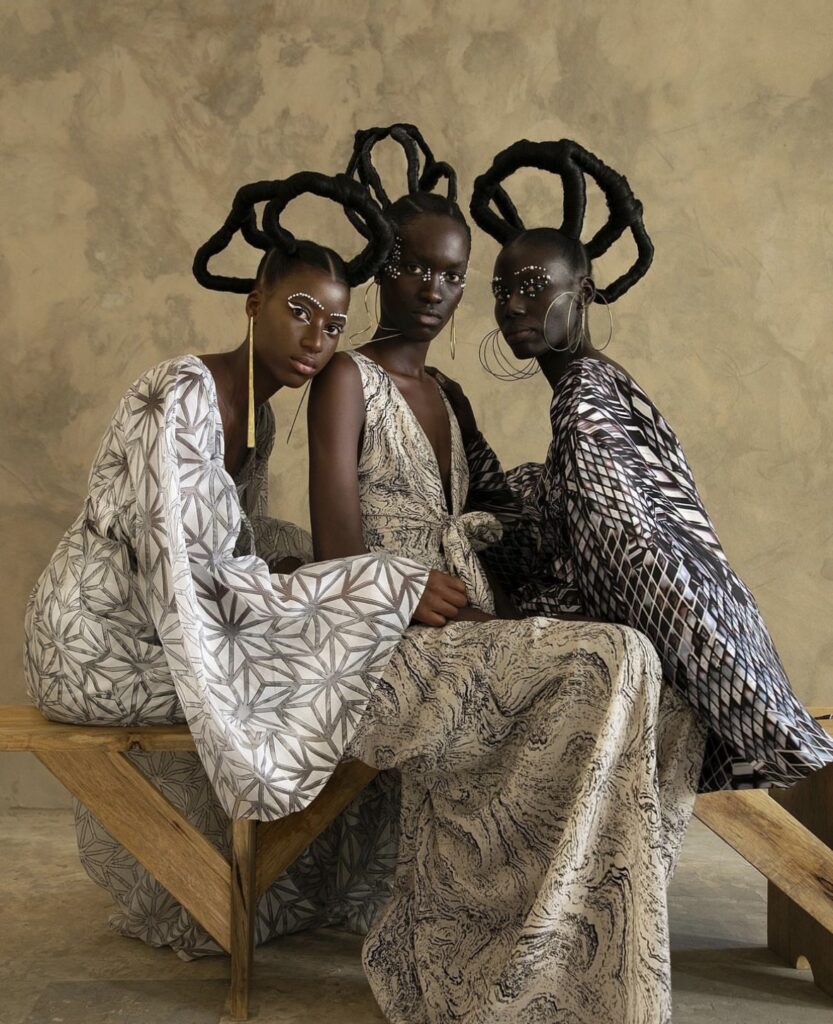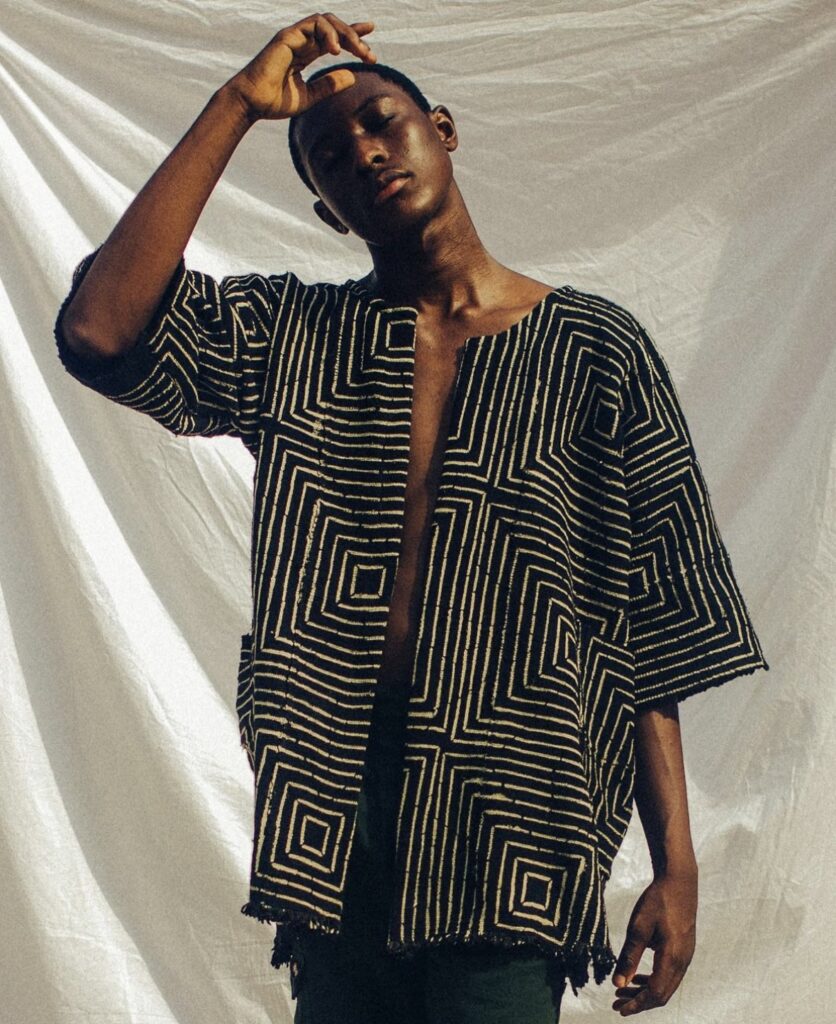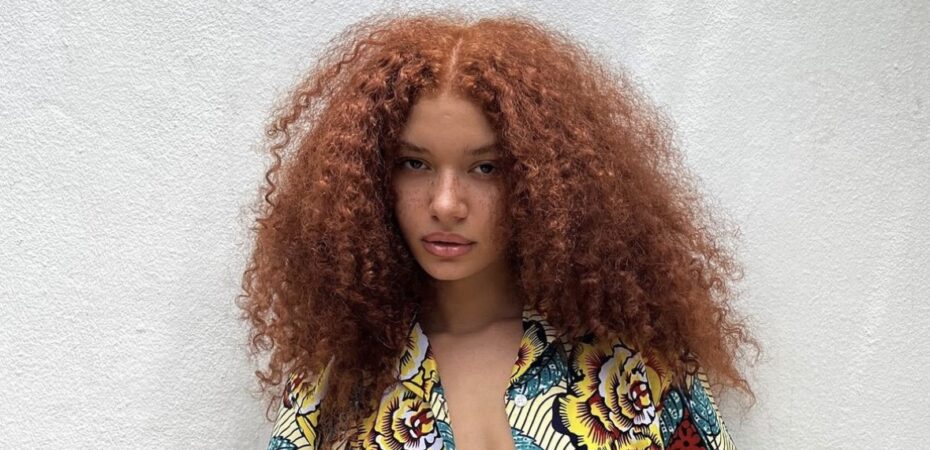The Struggles of West African Designers Against Big Corporations
Octavie Drevon
In the vibrant world of fashion, West Africa stands as a beacon of creativity, boasting a rich tapestry of traditional garments and designs that have inspired global trends for centuries. The unique aesthetics of West African fashion are not just about clothing; they embody centuries-old traditions, cultural stories and a profound sense of identity. As the world celebrates the diversity of African fashion, it becomes crucial to understand, appreciate and preserve these traditions in their authentic form.
Every garment is woven with a profound sense of identity amidst the kaleidoscope of colours and textures. Maya Amoah, a designer committed to preserving this legacy, reflects on her journey: “My love for fashion grew from my grandmother’s home in Ghana, where I fell in love with Batik and other African wax prints. I felt like there weren’t a lot of contemporary fashion brands using these prints in more streetwear styles.”
This feeling is echoed by Adiat Disu, founder of Africa Fashion Week, who emphasises,
“West African designers are at the forefront of a fashion revolution, reclaiming their narratives and reshaping the industry.”
A journey into the heart of West African fashion introduces us to a multitude of small-scale designers who passionately preserve their cultural heritage through their designs. African Fashion Week, held around October every year, showcases the commitment of these designers to create pieces that reflect their roots and contribute to the global fashion narrative. As we delve into their world, we encounter stories that encapsulate the essence of identity and tradition.
One designer is Sarah Diouf, the visionary behind the brand Tongoro. Her designs encapsulate the spirit of Senegal, blending traditional patterns with contemporary silhouettes. Diouf’s commitment to preserving the authenticity of West African culture is evident in each stitch and pattern, embodying a deep connection to her roots.

“Each piece tells a story, and it’s crucial to ensure that these stories are not diluted or misrepresented in the global market.”
Sarah Diouf on Africa Fashion International
However, the success of West African fashion has also attracted the attention of big corporations in the global fashion industry. Cultural appropriation, lack of proper credit and outright design theft have become persistent challenges for small-scale designers. This predatory behaviour jeopardises the very essence of West African fashion, as mainstream brands often capitalise on the aesthetics without acknowledging their origins.
West African fashion’s influence on the global stage cannot be overstated, as highlighted by Edward Enningul, Editor-in-Chief of British Vogue: “It’s a testament to the power of diversity and the beauty of embracing one’s cultural identity.”
When discussing the intricate process of preserving authenticity in West African fashion, Awurama Mankatah, the Ghanaian designer for Threaded Tribes, says, “In my designs, authenticity is paramount. We ensure this by sourcing our textiles directly from authentic indigenous sources. For instance, when acquiring Kente fabric, we get it from Kumasi. There’s no alternative; it’s crucial that the money circulates back into our local economy, supporting the African community.”
Exploitation not only hinders the growth and success of small businesses but also threatens the unique identity embedded in West African designs. The risk of losing authenticity is high as Western markets adopt these designs without understanding their cultural significance, perpetuating a cycle of erasure.
Amidst these challenges, profiles of designers like Amaka Osakwe of Maki Oh and Ozwald Boateng seamlessly blend British tailoring with Ghanaian influences, showcasing how embracing cultural identity can lead to global recognition. Their journeys serve as a guide for aspiring designers and a testament to the power of staying true to one’s roots.
As the global fashion landscape evolves, designers like Awurama Mankatah witness a notable shift in consumer consciousness. She says, “People are getting increasingly woke to the significance and richness of our traditions and the exceptional quality of our textiles. International consumers are growing more aware of these aspects, which is driving a greater appreciation for West African fashion worldwide.”
London, a culturally diverse city, embraces West African fashion, so navigating the fine line between appreciation and appropriation is imperative. Social media platforms offer a glimpse into the authentic work of small-scale designers, inviting consumers to support and celebrate their artistry.
For Awurama Mankatah, each design is a testament to the fusion of simplicity, practicality and cultural richness. Drawing inspiration from diverse cultures and utilising local human resources, her creations embody a unique blend of tradition and modernity rooted in the heart of West African heritage.

While drawing inspiration from West African prints and designs is acceptable, giving credit where credit is due is essential. Preserving the cultural identity of West African fashion is not just about aesthetics; it is about respecting the narratives, histories and traditions woven into each thread.
As the fashion industry evolves, it must recognise and uplift the voices of small-scale West African designers, ensuring their creations’ authenticity remains intact. By doing so, London’s fashion scene can truly celebrate the beauty of diversity and foster a global industry built on respect and inclusivity.
Discover more designers: Elsie Thompson and MISHANTY.

